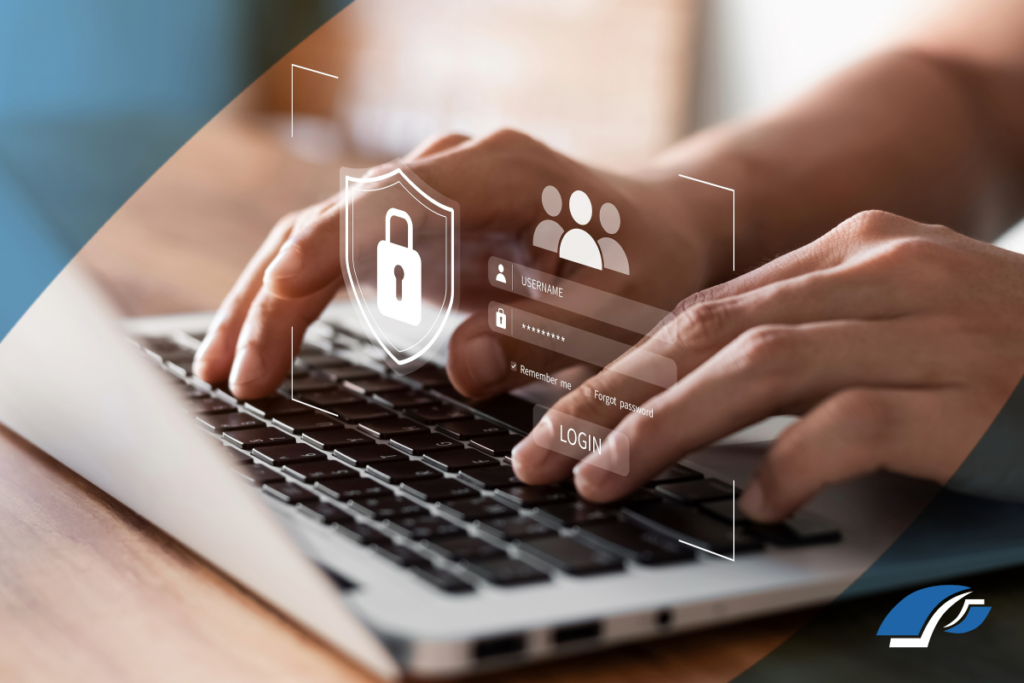In today’s digital age, the convenience of managing your finances online comes with the responsibility of safeguarding your sensitive financial information. Cyber threats and identity theft pose real risks to your financial security, making it essential to adopt robust strategies to protect your financial information online. In this article, we’ll explore effective strategies that can help you safeguard your financial information online and enjoy the benefits of digital financial management with greater peace of mind.
Strengthen Your Passwords
Your first line of defense to protect your financial information online is a strong password to thwart potential threats. Create unique passwords for each financial account, avoiding easily guessable combinations such as birthdays or common words. A strong password should include a mix of upper and lower-case letters, numbers, and special characters. Consider using a passphrase—a longer combination of words and characters that’s easier for you to remember but difficult for others to guess.
Enable Two-Factor Authentication (2FA)
Two-factor authentication may feel like an extra, inconvenient, step when you’re trying to access your financial accounts. However, it adds an extra layer of security to protect your financial information online. With 2FA enabled, you’ll need to provide a second piece of information (such as a code sent to your phone) in addition to your password when logging in, but it prevents unauthorized access even if your password is compromised.
Regularly Update Software and Apps
Cyber attackers often exploit vulnerabilities in outdated software and apps. Keep your operating systems, browsers, and financial apps up to date to ensure you have the latest security patches and protections. Often, you’ll see a pop-up message when an update is available, making it simple to click and get the latest, most secure version. Enable automatic updates whenever possible, too, to minimize the risk of oversight when you get busy or distracted.
Use Secure Networks
If you want to protect your financial information online, it is essential to only access financial accounts when you can use secure and trusted networks. Avoid conducting sensitive transactions or accessing confidential information on public Wi-Fi networks, which may be more susceptible to hacking. Instead, use secure and private networks, such as your home Wi-Fi or a virtual private network (VPN), to guard against common cyber-attacks.
Beware of Phishing Scams
Speaking of cyber-attacks, phishing scams are some of the most common. These scams involve fraudulent attempts to steal your personal information, often through deceptive emails or websites. Be cautious when clicking on links or providing personal information online. Always verify the authenticity of emails or websites before entering any sensitive information.
Regularly Monitor Your Accounts
If you’re not in the habit of logging into your accounts very often, set a routine that will help you better protect your financial information online. Frequently monitor your financial accounts for any unauthorized or suspicious activity. Regularly reviewing your transactions helps you identify potential security breaches early and take prompt action to mitigate risks.
Use Secure Websites (HTTPS)
Here’s a bit of information many people don’t know, but which can be consequential when you want to protect your financial information online: When accessing financial websites, ensure that the URL begins with “https” rather than “http.” The “s” indicates that the website is using a secure, encrypted connection. This encryption helps protect your data from being intercepted by cybercriminals.
Be Cautious with Social Media Sharing
We know, we know. It’s fun to share photos and stories on social media, especially regarding updates on your life or work. However, it’s critical to avoid sharing too much personal information on social media platforms. Cybercriminals can use the information you post to target you with phishing scams or gain unauthorized access to your accounts.
Regularly Back Up Data
Backing up your financial data regularly also helps you protect your financial information online. It ensures that you have a copy of your important information in case of a cyberattack or data loss. Store backups in secure locations, such as external hard drives or cloud-based storage services with strong security measures.
Are You at Risk? Protect Your Financial Information Online Today
The convenience of online financial accounts means they probably aren’t going anywhere anytime soon. However, this also means bad actors will continue to target you if you aren’t taking measures to protect your financial information online. Take the time now to guard against very real digital risks so that you won’t be faced with a criminal financial setback in the future.
Protecting your financial information online is an essential aspect of maintaining your financial security. By strengthening your passwords, enabling two-factor authentication, keeping software updated, using secure networks, staying vigilant against phishing scams, monitoring your accounts, using secure websites, being cautious with social media sharing, and regularly backing up your data, you’re taking proactive steps to safeguard your financial well-being. As you implement these strategies, you’re not only reducing the risk of cyber threats but also ensuring that your digital financial management remains a secure and empowering experience.
If you’d like to talk further about your financial security, we can help. Contact the team at Principal Preservation Services today to schedule a one-on-one conversation.









